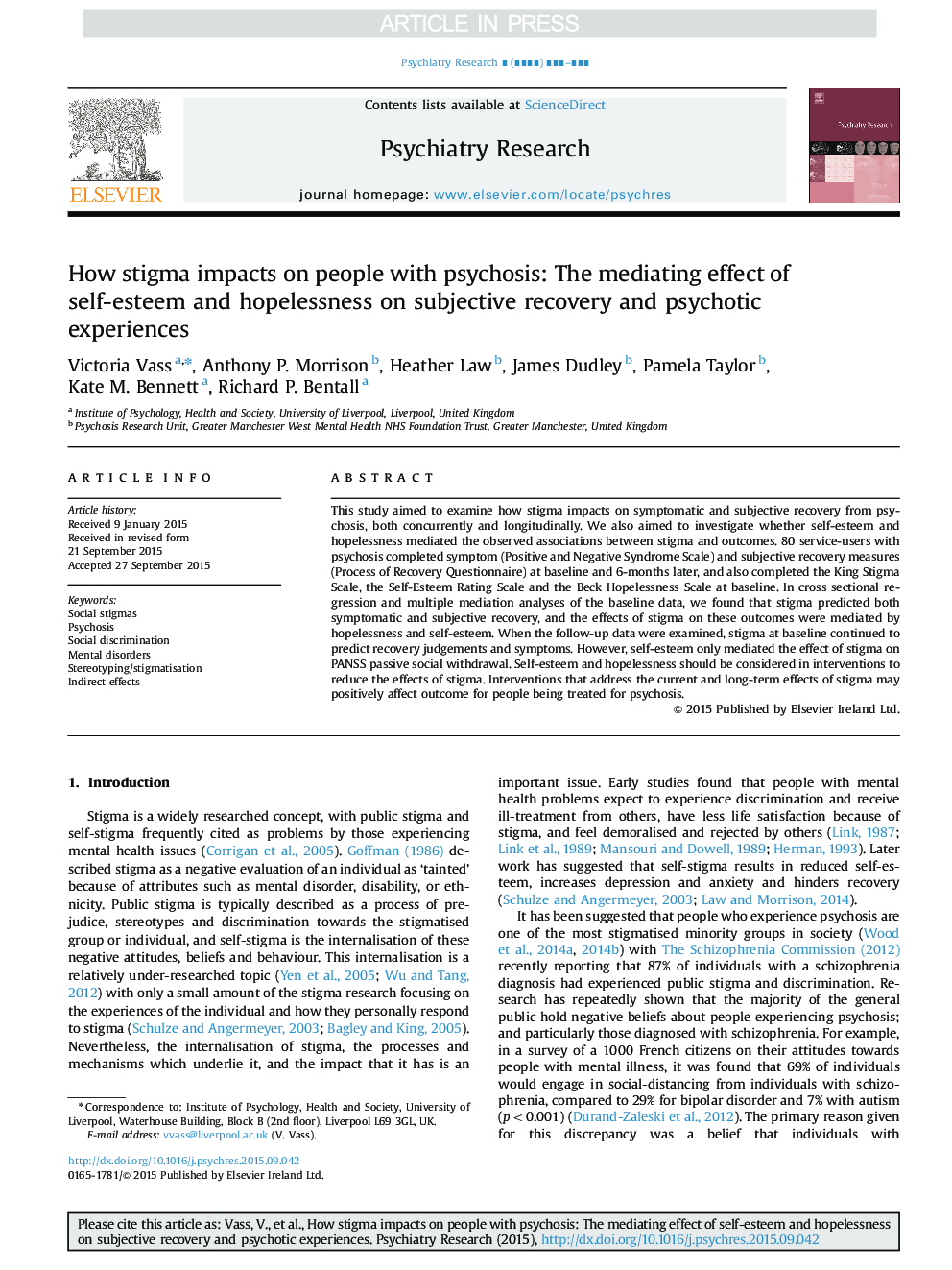| Article ID | Journal | Published Year | Pages | File Type |
|---|---|---|---|---|
| 10303618 | Psychiatry Research | 2015 | 9 Pages |
Abstract
This study aimed to examine how stigma impacts on symptomatic and subjective recovery from psychosis, both concurrently and longitudinally. We also aimed to investigate whether self-esteem and hopelessness mediated the observed associations between stigma and outcomes. 80 service-users with psychosis completed symptom (Positive and Negative Syndrome Scale) and subjective recovery measures (Process of Recovery Questionnaire) at baseline and 6-months later, and also completed the King Stigma Scale, the Self-Esteem Rating Scale and the Beck Hopelessness Scale at baseline. In cross sectional regression and multiple mediation analyses of the baseline data, we found that stigma predicted both symptomatic and subjective recovery, and the effects of stigma on these outcomes were mediated by hopelessness and self-esteem. When the follow-up data were examined, stigma at baseline continued to predict recovery judgements and symptoms. However, self-esteem only mediated the effect of stigma on PANSS passive social withdrawal. Self-esteem and hopelessness should be considered in interventions to reduce the effects of stigma. Interventions that address the current and long-term effects of stigma may positively affect outcome for people being treated for psychosis.
Related Topics
Life Sciences
Neuroscience
Biological Psychiatry
Authors
Victoria Vass, Anthony P. Morrison, Heather Law, James Dudley, Pamela Taylor, Kate M. Bennett, Richard P. Bentall,
